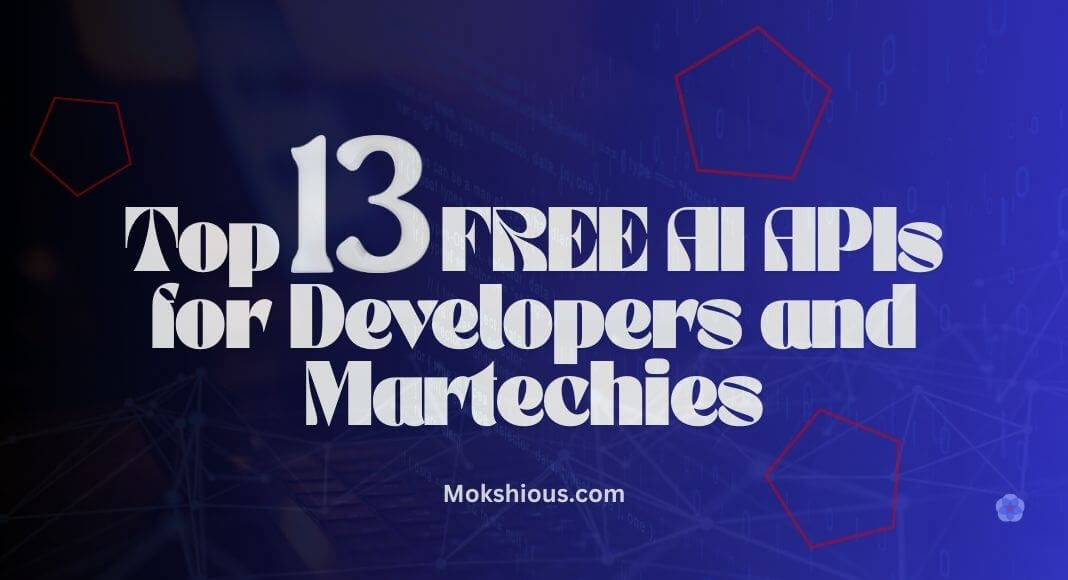Let’s be honest: spinning up AI proof-of-concepts can feel expensive, slow, and a little overwhelming. The good news? There are plenty of APIs you can start using today without dropping a dime. Many even come with starter credits. That means you can test models, prototype tools, or plug AI into your workflows without the fear of surprise costs.
This post rounds up 13 free AI APIs worth your time. These aren’t fluff; they’re live endpoints you can call right now. You’ll also see what each one is best for, how reliable it is, and what the free tier looks like. Think of it as your go-to sandbox for building and experimenting.
Quick Picks by Use-Case
If you’re in a hurry, here’s the fast track:
- Text & LLM APIs: OpenRouter, Cohere, GroqCloud
- Embeddings & Search: Hugging Face, Cohere embeddings, Tavily
- Speech (TTS & STT): AssemblyAI, Deepgram
- Image & Vision: Stability AI, NVIDIA NIM
- Aggregators & Infra: Eden AI, Chutes.ai, Google Cloud
Pick your lane, dive in, and start testing.
The Complete List of 13 Free AI APIs
1. OpenRouter – Multi-model gateway
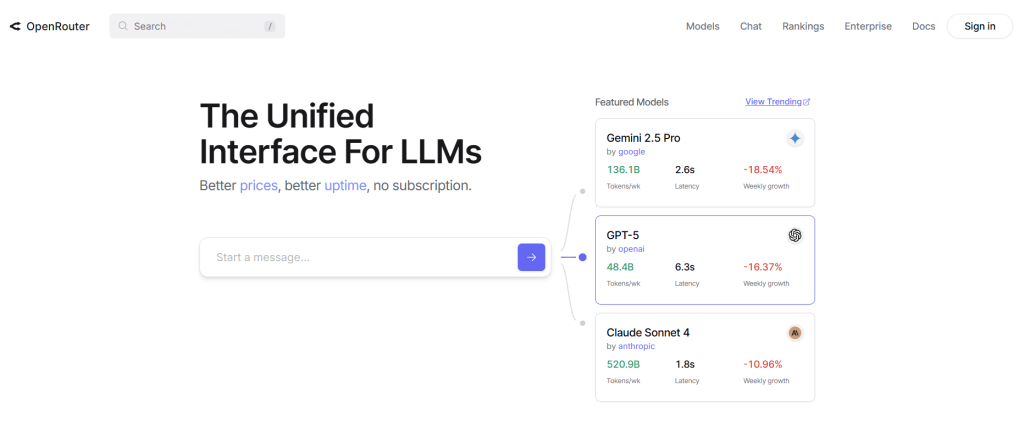
OpenRouter works like a universal plug for AI models. Instead of signing up for OpenAI, Anthropic, Mistral, and others one by one, you get a single API that connects you to all of them. Devs appreciate the simplicity of swapping models with one parameter, while marketers like how easy it is to test messaging across different providers.
Reliability: Generally strong. Developers report stable uptime, and since you can route across models, there’s a built-in safety net if one provider goes down.
Best for: Teams that want to try multiple models quickly without committing to a single vendor.
Free tier: About 50 free model calls a day. Add $10 in credits, and you unlock up to 1,000 daily calls.
2. Hugging Face Inference API (Serverless)
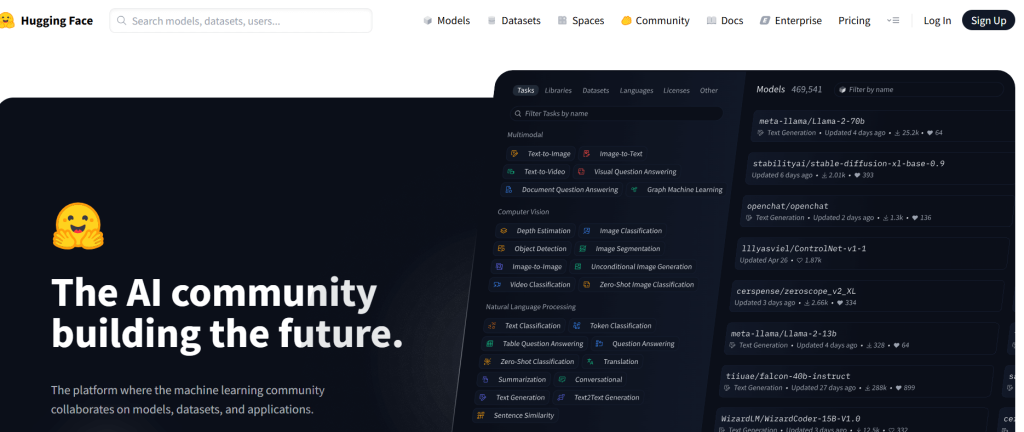
Hugging Face has become the heart of the open-source AI world. Its Inference API lets you run thousands of models instantly, no GPUs, no complicated setup. From embeddings to sentiment classifiers to niche vision models, it’s a grab-and-go library for developers and marketers.
Reliability: Excellent. Hugging Face has the scale and reputation to back production use cases.
Best for: Developers experimenting with embeddings or specialized community models.
Free tier: Small requests are covered for free; larger workloads are billed as you go.
3. AssemblyAI – Speech & Audio AI
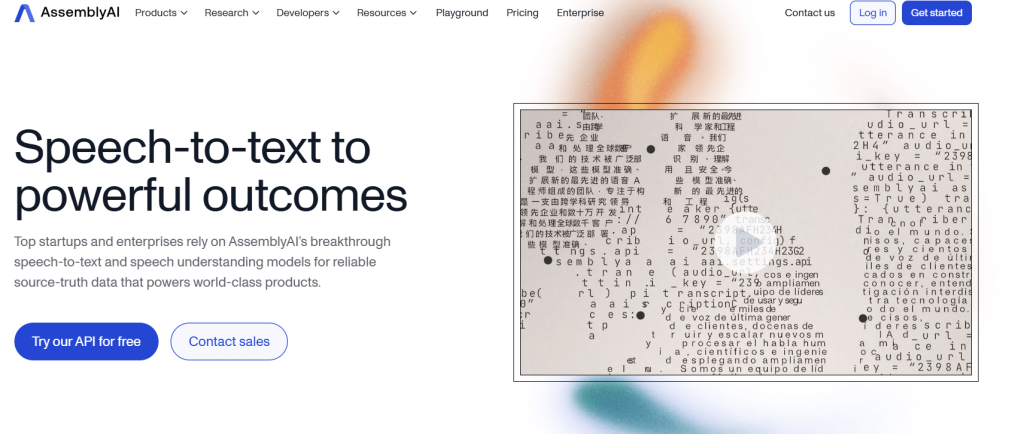
AssemblyAI specializes in turning unstructured audio into usable data. Need transcription, speaker separation, summarization, or even sentiment analysis? It’s all one API call away. Many podcast tools, customer analytics platforms, and voice apps run on it. They are giving 330 free hours.
Reliability: High. Widely trusted in production.
Best for: Building voice tools, podcast apps, or speech search features.
Free tier: Free 330 hours let you test before paying.
4. Eden AI API for Developers
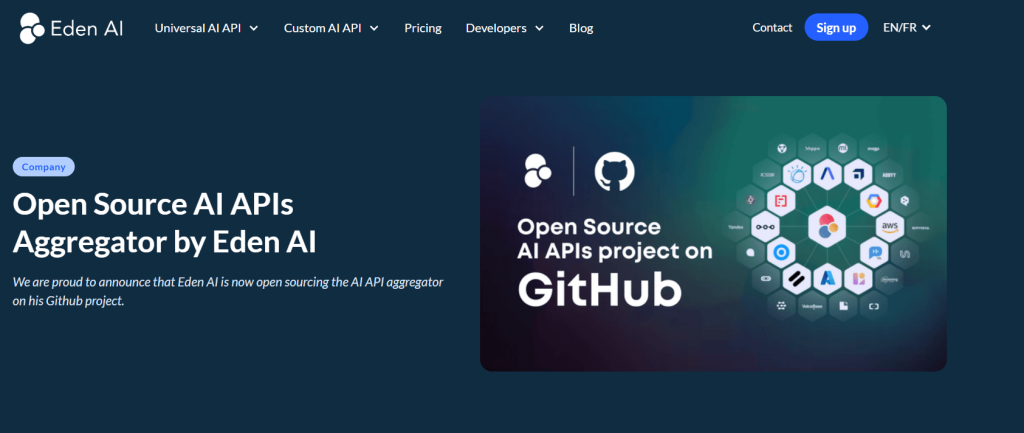
Eden AI simplifies vendor choice. Instead of wiring up five different APIs, you integrate once and compare outputs across providers for text, speech, vision, or translation.
Reliability: Solid. If one provider has downtime, you can switch seamlessly to another.
Best for: Prototyping multi-modal AI workflows or benchmarking vendors.
Free tier: Comes with trial credits for hands-on testing.
5. Chutes.ai – Unified LLM API
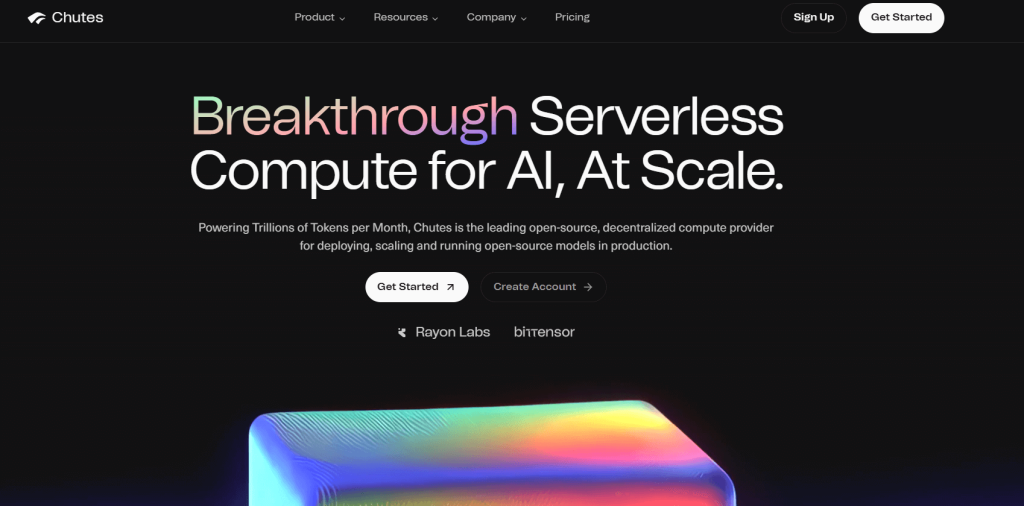
Chutes.ai is designed for fast experimentation. It gives you one endpoint that supports multiple LLMs, so you can swap models without touching your core code. Great for startups and solo developers who want to test ideas quickly.
Reliability: Decent. It’s a newer platform, so not as proven as Hugging Face or Google, but steady enough for prototypes.
Best for: Rapid LLM prototyping with minimal setup.
Free tier: A generous free plan is available for early-stage testing.
6. NVIDIA NIM API Catalog
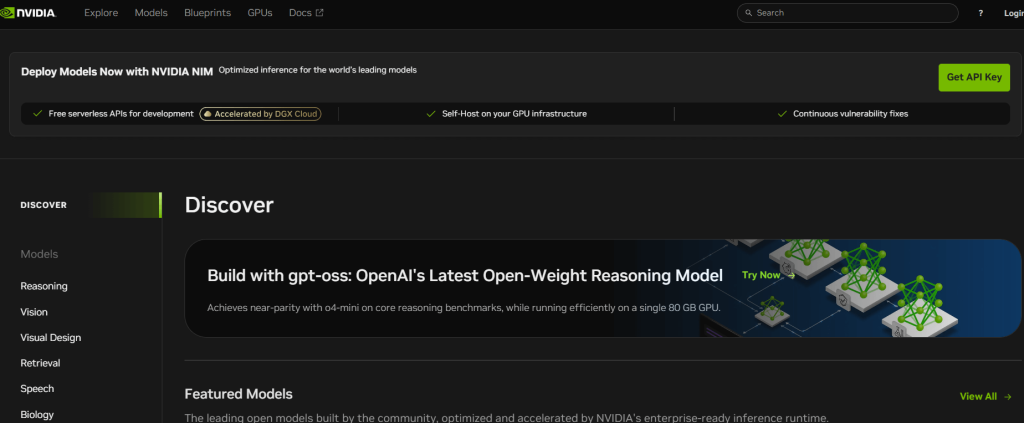
NVIDIA NIM delivers enterprise-grade performance through hosted APIs. It features NVIDIA-optimized models for text, vision, and speech, all running on their hardware.
Reliability: Very high. You’re backed by NVIDIA’s infrastructure.
Best for: Teams needing reliable, compliant, high-performance AI.
Free tier: Includes free playground access so you can test models directly.
7. Cohere – Embed, Rerank, Generate
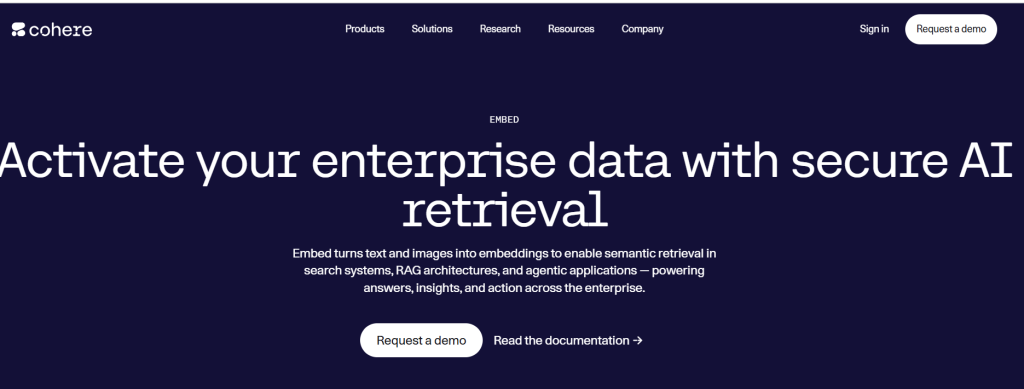
Cohere takes a practical approach: its APIs focus on embeddings, reranking, and text generation. That makes it a go-to for companies building smarter search engines or retrieval-augmented generation (RAG) apps.
Reliability: Excellent. Cohere is used in production by a wide range of startups and enterprises.
Best for: Embeddings, reranking search results, or lightweight text gen.
Free tier: A Trial API key gives you limited free usage.
8. GroqCloud – Ultra-Low Latency LLMs
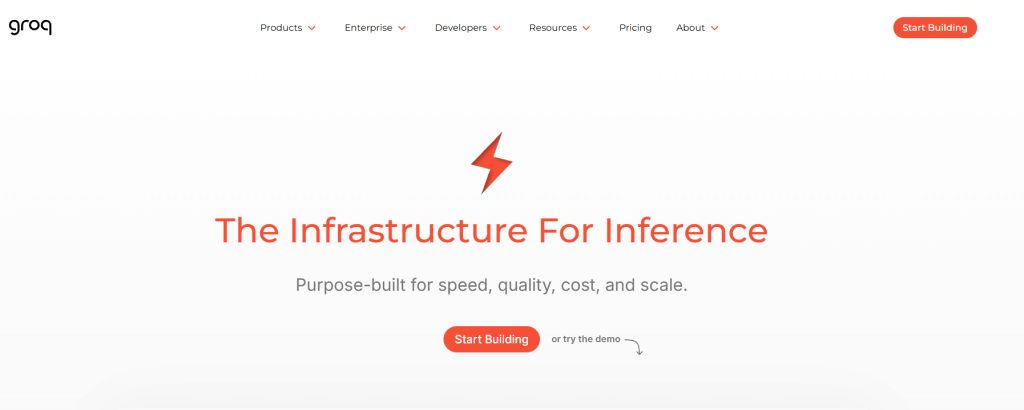
GroqCloud is all about speed. Its custom chips can generate responses nearly instantly, making it ideal for apps where latency matters. Think AI chatbots, live dashboards, or any UI where lag ruins the experience.
Reliability: Mixed but improving. While some users report occasional latency spikes, benchmarks show very strong throughput (241 tokens/sec, ~0.8s to first token). Groq recently expanded its infrastructure to boost stability.
Best for: Real-time, low-latency applications.
Free tier: Yes, limited, but enough to experiment with.
9. Google Cloud Vertex AI – $300 Free Credit
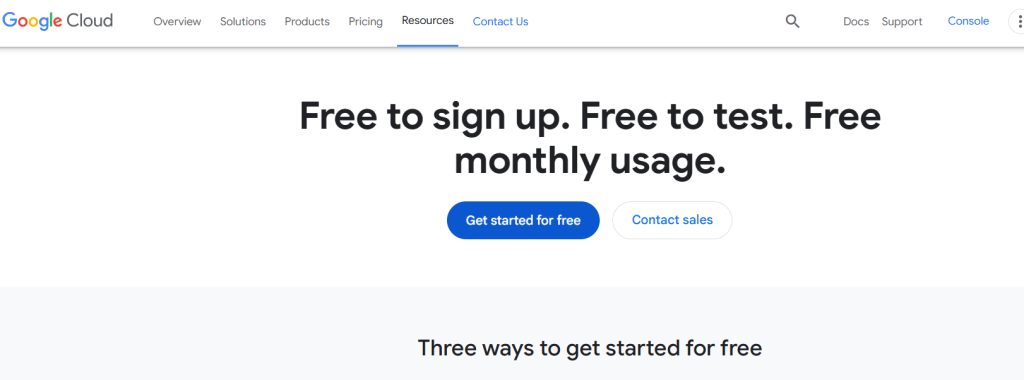
Vertex AI is Google’s full AI suite rolled into one platform. You get access to Gemini APIs plus tools for speech, vision, and translation.
Reliability: Enterprise-grade. Backed by Google’s massive infrastructure.
Best for: Bigger AI experiments, multimodal pipelines, or enterprise projects.
Free tier: $300 in free credits, usable across the platform.
10. Deepgram – Speech-to-Text & TTS
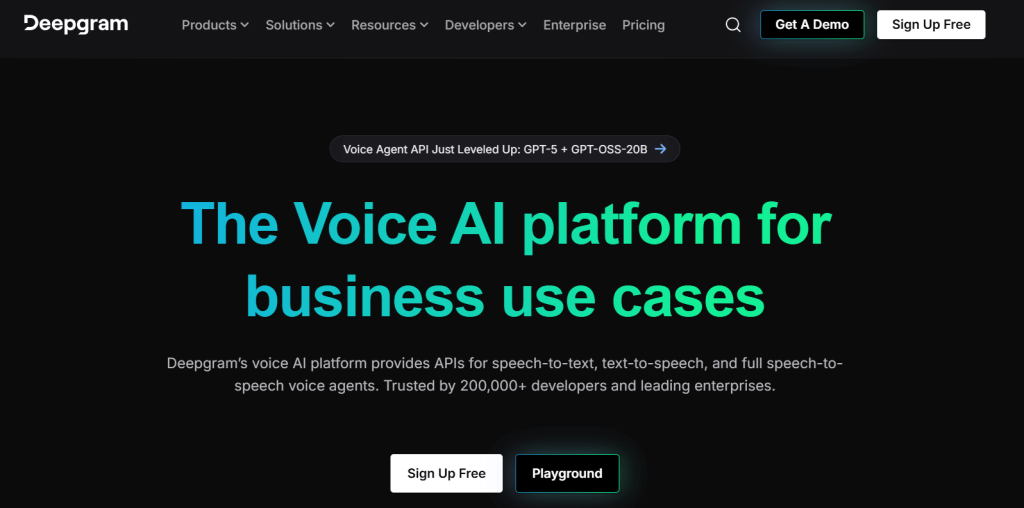
Deepgram focuses on voice. With strong transcription and TTS, it’s used by call centers, meeting apps, and voice assistants.
Reliability: Trusted and accurate. Solid for production.
Best for: Apps that need to listen or talk back, transcription, and speech generation.
Free tier: $200 free credits for new accounts.
11. Tavily Search API – RAG-Ready Search
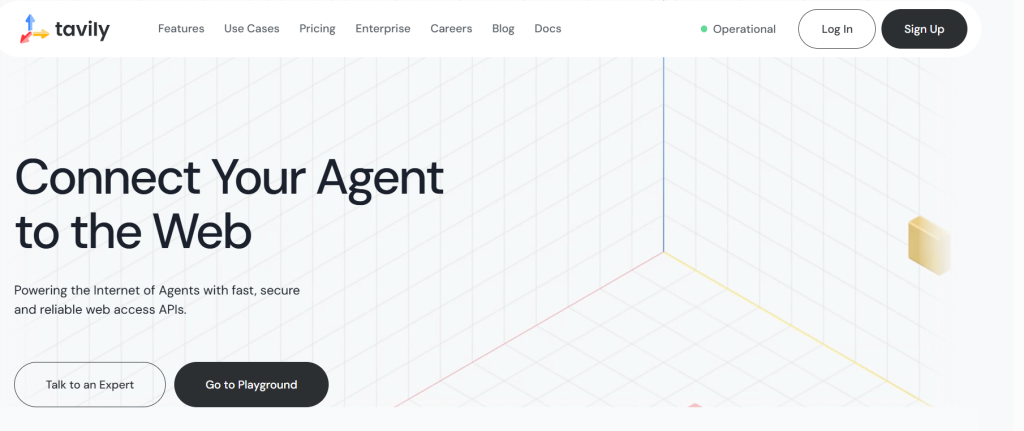
Tavily is built with retrieval-augmented generation in mind. It gives you a clean search API tuned for AI, saving you from building your own crawler.
Reliability: Steady and dependable for early-stage RAG apps.
Best for: Research assistants, knowledge bots, and custom AI search tools.
Free tier: Free API key on signup with a usable quota.
12. Stability AI – Image Generation APIs
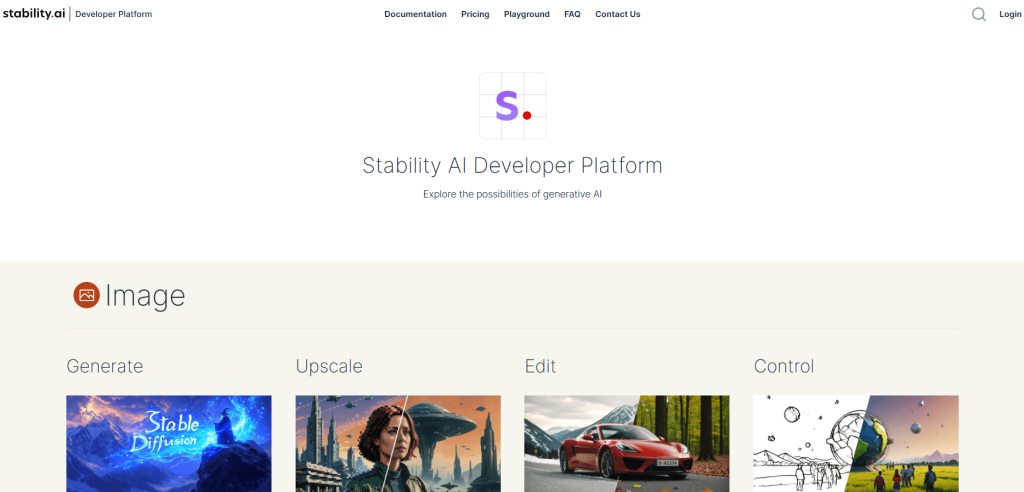
Stability AI, the team behind Stable Diffusion, provides APIs for generating, editing, and remixing images. Perfect for marketing, creative projects, or rapid prototyping.
Reliability: Generally stable, though heavy image workloads may hit rate caps.
Best for: Fast content creation, creative marketing, or ad visuals.
Free tier: Starter credits offered at signup.
13. Together AI – Open-Weight Models
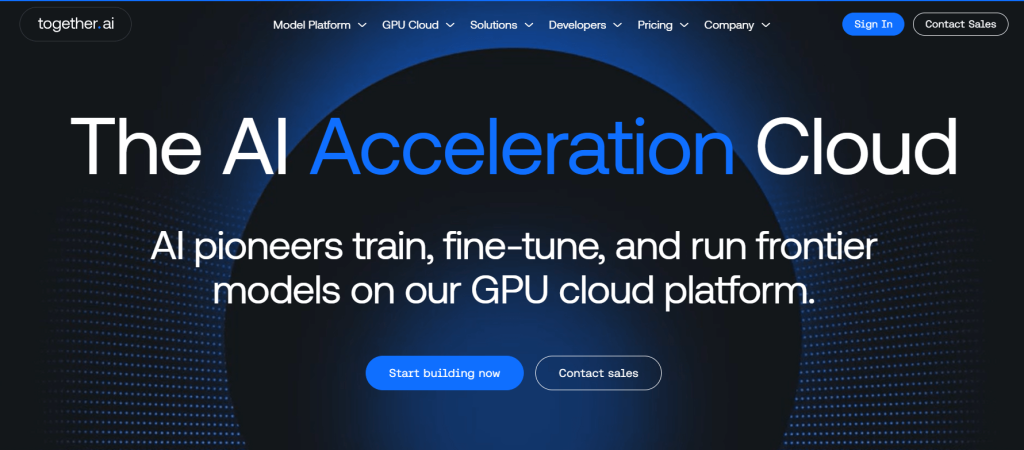
Together AI gives developers API access to open-weight models like Llama and Mixtral. Instead of proprietary lock-in, you get transparency and flexibility.
Reliability: Moderate. Stability depends on the model, but solid for dev use.
Best for: Developers who prefer open models and want more control.
Free tier: Free trial credits available.
How to Choose the Right Free API
When weighing your options, don’t just look at “free.” Consider:
- Latency & performance: GroqCloud excels here.
- Rate limits & quotas: OpenRouter’s 50/day vs 1,000/day with credits.
- Docs & SDKs: Hugging Face and Cohere provide the smoothest dev experience.
- Privacy & compliance: NVIDIA NIM is enterprise-friendly; OpenRouter gives routing flexibility.
- Roadmap stability: Cohere and Google feel long-term reliable, while Eden AI and Chutes are newer and moving fast.
Stack Patterns That Work (Free + Free = Prototypes)
- RAG Chatbot: Tavily + Cohere embeddings + OpenRouter LLM
- Voice Funnel: Deepgram STT + Cohere Generate + Stability AI images
- Growth Tool: Chutes.ai + Hugging Face classification
- Low-Code Marketing Agent: GroqCloud + Eden AI
Mix and match, these stacks are cheap to try and quick to set up.
Cost-Control Checklist
- Cache responses in your prototype to save credits.
- Trim prompts; fewer tokens = fewer calls.
- Batch embedding requests whenever possible.
- Use provider dashboards to keep an eye on quota.
- Run evals before scaling loops into production.
FAQ: Everything You Might Wonder
Can I really use these free AI APIs for commercial projects?
Yes, though usually only on a small scale. Free tiers are meant for testing and prototyping. Once you’re serving paying customers or hitting higher usage, you’ll need a paid plan. Always check each provider’s TOS.
Do I need a credit card to sign up?
Not always. OpenRouter, Tavily, and some Hugging Face models don’t require one. Providers like Google Cloud and Cohere usually do if you want credits unlocked.
Which free AI API is the fastest?
GroqCloud is in a league of its own for speed. Its hardware makes token generation almost instant. OpenRouter is also strong, but Groq is best if latency is mission-critical.
Which API gives the most free credits?
Google Cloud Vertex AI offers $300 credits. Deepgram comes close with $200 for voice apps. OpenRouter’s free daily calls are nice, but more limited.
What’s the best option for marketers vs. developers?
- Marketers: Stability AI for visuals, AssemblyAI or Deepgram for voice, Eden AI for vendor testing.
- Developers: OpenRouter for multi-model access, GroqCloud for real-time use, Cohere for embeddings and search.
Conclusion & Next Steps
That’s your lineup,13 free AI APIs ready to explore. Whether you’re chasing low-latency LLMs on GroqCloud, cranking out images with Stability AI, or mixing services through Eden AI, the barrier to building has never been lower.
Free tiers give you freedom: freedom to compare, freedom to stitch together creative stacks, and freedom to explore without burning cash.
For marketers, that means testing campaigns with voice, copy, and visuals. For developers, it means spinning up prototypes without red tape.
